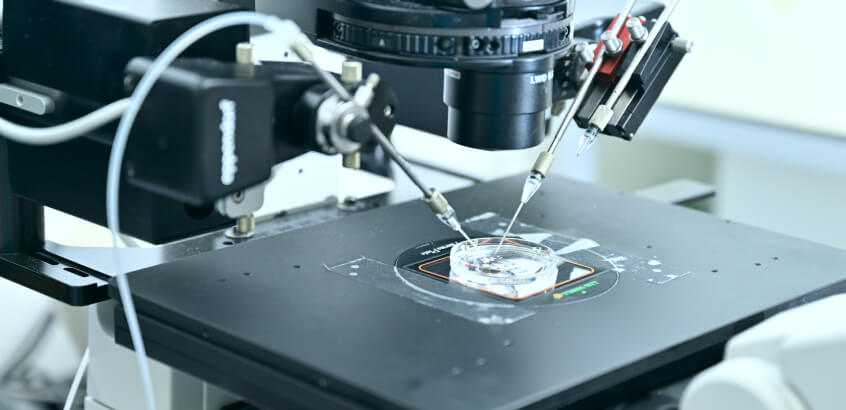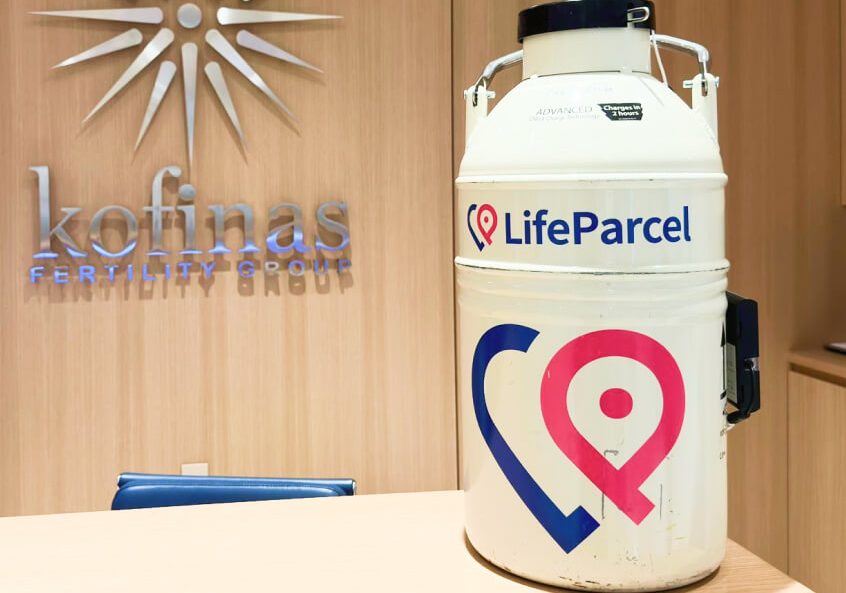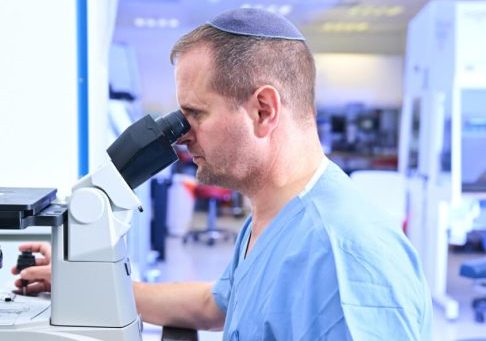Why Temperature Monitoring Matters
Even a brief fluctuation in temperature can jeopardize the viability of IVF materials. Sperm, eggs, and embryos are highly sensitive to environmental changes, and their successful preservation depends on maintaining cryogenic conditions throughout transit. Studies show that even slight temperature deviations during shipment can impact cellular integrity, potentially affecting fertility outcomes.
That’s why temperature monitoring is a cornerstone of IVF material safety. In cryogenic logistics, constant oversight isn’t a luxury—it’s a necessity. This article explores how advanced monitoring systems are used to safeguard reproductive materials, ensuring secure fertility material transport from origin to destination.
Understanding Cryogenic Transport Requirements
Cryogenic transport relies on maintaining ultra-low temperatures—typically around -195°C—to preserve the delicate biological structure of gametes and embryos. These conditions effectively pause all cellular activity, protecting the fertility materials from degradation until they reach their destination.
Experienced couriers use specialized equipment like liquid nitrogen dry shippers to achieve this. These containers are engineered to maintain stable cryogenic temperatures for extended periods without active refrigeration. Their consistent performance is crucial to cryogenic logistics and is vital in ensuring secure fertility material transport across short and long distances.
What Temperature Monitoring Involves
Temperature monitoring for cryogenic shipments involves more than just routine checks—it’s a real-time system that continuously tracks and logs temperature conditions from pickup to delivery. Data is transmitted to the courier and client via secure platforms, allowing for immediate alerts if any threshold is breached. This level of transparency is key to ensuring IVF material safety throughout transport.
Advanced sensor technology powers these monitoring systems. Digital probes are embedded in the liquid nitrogen dry shippers and calibrated to detect even minor fluctuations. If a temperature change threatens the cryogenic environment, automated alerts trigger corrective action. This cryogenic innovation helps prevent damage before it occurs, reinforcing the reliability of secure transport.
Risks of Inadequate Temperature Monitoring
Without robust temperature monitoring, IVF materials are vulnerable to irreversible damage. Embryos, sperm, and eggs require consistent exposure to temperatures near -195°C. Even a brief deviation—even a few degrees for just a few minutes—can compromise their structural integrity, rendering them non-viable for future fertility treatments.
There have been documented cases (generalized for privacy) where monitoring failures led to tragic losses: unnoticed dry shipper depletion, delayed alerts, or poorly calibrated sensors. These incidents underscore the necessity of secure fertility material transport backed by reliable fertility material transport systems. Continuous monitoring isn’t just a safeguard—it’s a non-negotiable component of IVF material safety.
How LifeParcel Ensures Temperature Security
As a trusted IVF courier company, LifeParcel employs rigorous temperature monitoring protocols for every shipment. Couriers use real-time systems that track cryogenic conditions continuously, ensuring that materials remain at -195°C from start to finish. In addition, contingency planning is built into every mission, with backup equipment and rerouting strategies ready to activate in the event of delays or disruptions.
Clients also benefit from LifeParcel’s commitment to transparency and reassurance. Through 24/7 fertility courier support, clients receive status updates and monitoring data at key points in the journey. This reinforces trust and provides peace of mind, knowing their fertility materials are being safeguarded with precision.
Choosing a Courier with Advanced Monitoring
When selecting a fertility transport provider, it is essential to ask detailed questions about their monitoring technology. Does the courier use temperature sensors with real-time alerts? What thresholds trigger intervention? Is there human oversight in addition to automation? These questions can help patients and clinics identify partners who prioritize safety and accountability.
Experienced providers like LifeParcel combine advanced technology with concierge fertility transport services, delivering logistical precision and compassionate care. Their expertise in cryogenic logistics ensures reliable fertility material transport across borders and timelines, giving families and fertility clinics the confidence they need when the stakes are high.
Safety Starts with Monitoring
In cryogenic transport, temperature monitoring isn’t just a technical detail—it’s a lifeline for IVF material safety. Maintaining stable conditions throughout transit ensures that eggs, sperm, and embryos arrive at their destination viable and ready for treatment. Without reliable monitoring, even the most advanced fertility procedures are at risk.
That’s why choosing the right courier matters. LifeParcel’s unwavering focus on temperature monitoring, precision handling, and secure transport of embryos and gametes gives patients and clinics peace of mind. When your family’s future is in transit, trust the experts who treat every shipment with care and commitment.





